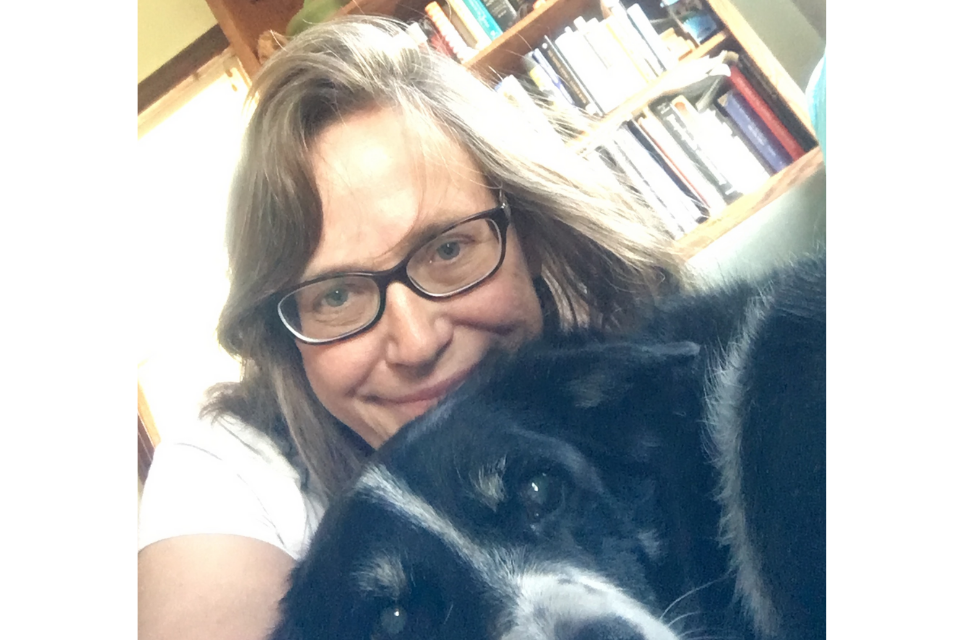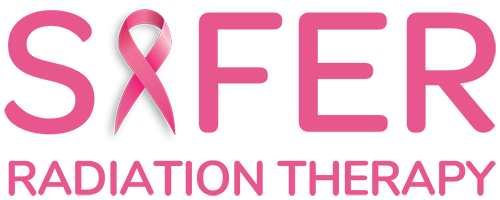
Meet Martha Carlson…
Martha lives in Illinois with her husband and three children – her youngest is 12 and her oldest is 18. She also has a dog and a lizard.
In January 2015, she was diagnosed with metastatic breast cancer.
As part of her treatment, Martha was given several small tattoos by her radiation oncologist, “to allow me to line up properly for the machine.” In a blog post she wrote for the CURE website, titled “Do Radiation Tattoos Matter?”, she discusses how these tiny marks wound up having a rather large impact on her psyche. “I thought I’d eventually forget about these tattoos,” she says in the post. “but that hasn’t happened.”
We chatted with Martha to find out more about her insights into coping with breast cancer and its treatment.
You were diagnosed with metastatic cancer at 52. This was no doubt a challenging experience. Can you tell us a little more about your journey?
I was officially diagnosed with breast cancer just days after turning 50, and with metastatic breast cancer within a couple weeks of that, following a CT scan that showed some concerning issues with my lungs in particular.
I don’t call living with cancer a “journey”. It is my life and though I know some people use that term, I just don’t find it useful. My life has changed but it is still a life that I treasure. I vividly recall the moment my oncologist told me they were concerned that my cancer hadn’t been found while it was early-stage. It took a long time to adjust once a biopsy proved them right. As you can probably imagine, there was a huge feeling of loss—around my future and especially of time with my family. It’s very easy to get swept into spiraling feelings of loss, sadness, fear, isolation. And on top of that emotional trauma, there’s the fact of treatment, sometimes harsh treatment.
I have been lucky to be resilient, respond well to treatment, and to have enough friends and family willing and able to stand by my side and offer love and support even when I was most scared and alone. They aren’t afraid, and that helps.
Where are you now?
I had a great response to my initial treatment of HER2+ metastatic breast cancer. I was on Taxol, Herceptin and Perjeta for the first six months, and have been able to remain on my first-line of Herceptin and Perjeta since then.
I started writing about my life with cancer within the first year, and found many friends through metastatic breast cancer organizations and social media groups. As I’ve continued my treatment, I’ve also found a home with advocacy groups focused on increasing research funding and support for those living with metastatic breast cancer.
Can you share a little about when you were informed that you would need radiation tattoos and what your reaction was?
I was thrilled that breast radiation was being offered since at the time, at my cancer center, that was not the norm for people with metastatic breast cancer. I had responded so well to the initial chemotherapy that my doctors wanted to treat me “as if I was early stage”. They actually used that phrase, and as someone with stage IV who knew the statistics, I knew I was exceedingly lucky.
That said, I was not well-informed about what radiation would entail. There is a lot of information to absorb and sometimes it’s impossible to hear or remember what seems like a small detail when a doctor is describing a procedure. I knew my skin would need extra care and that I needed to be watchful. I don’t recall even knowing anything about the tattoos until I arrived for the set-up day.
The tattoos didn’t hurt. I had to be “set-up” twice, so with multiple sets of tattoos, because the first time the doctor wasn’t satisfied with the amount of risk to my lungs. I appreciated that attention to detail—I’d rather have many small tattoos then damaged lungs or heart, yet I do notice these little dots every day.
Thinking back to when you started, what are some things you wish you had known before treatment?
I wish I had known how tiring radiation therapy can be. I had to drive there five days a week for about a month, and having radiation combined with my targeted therapy was physically and emotionally exhausting.
What resources or information have you found helpful?
My radiation oncologist was good about recommending specific creams and gave me a prescription to prevent an infection when a couple spots became painfully open. However, I actually found online sites that addressed real patient questions to be more helpful because of the variety of patient experiences and physician recommendations. I also made a lot of use of groups like Living Beyond Breast Cancer, which has advice vetted by physicians and researchers.
What advice do you have for someone who is newly diagnosed and will need radiation therapy?
You can get through it. If you’re tired, rest. And accept the kindness of friends who can help by driving you or in any other way, such as cleaning the house or cooking a meal.
It’s very important to think about your care not just from the medical angle but from the quality of life perspective too. So, know your options, ask questions, if you don’t have enough information to feel comfortable then ask for more time and more information. It can be hard to do that at times because advocating for yourself isn’t always something we’ve learned to do well. I know firsthand how steep that learning curve is when it comes to figuring out what questions to ask.
I am always careful not to endorse or recommend drugs/tests/treatment options because, first of all, I’m not a doctor but also because each of us has different preferences and experiences. I do think knowing options exist in radiation, especially ones that may keep your heart safer, is important so that patients can consider what matters to them, better weigh the evidence, and make the best decisions for themselves.
What inspires you every day?
I find inspiration everywhere—my husband, my kids, my friends who are changing the future for people with metastatic cancer, the outdoors, excellent books, and the unexpected laughter and joy I find with those living with cancer.
